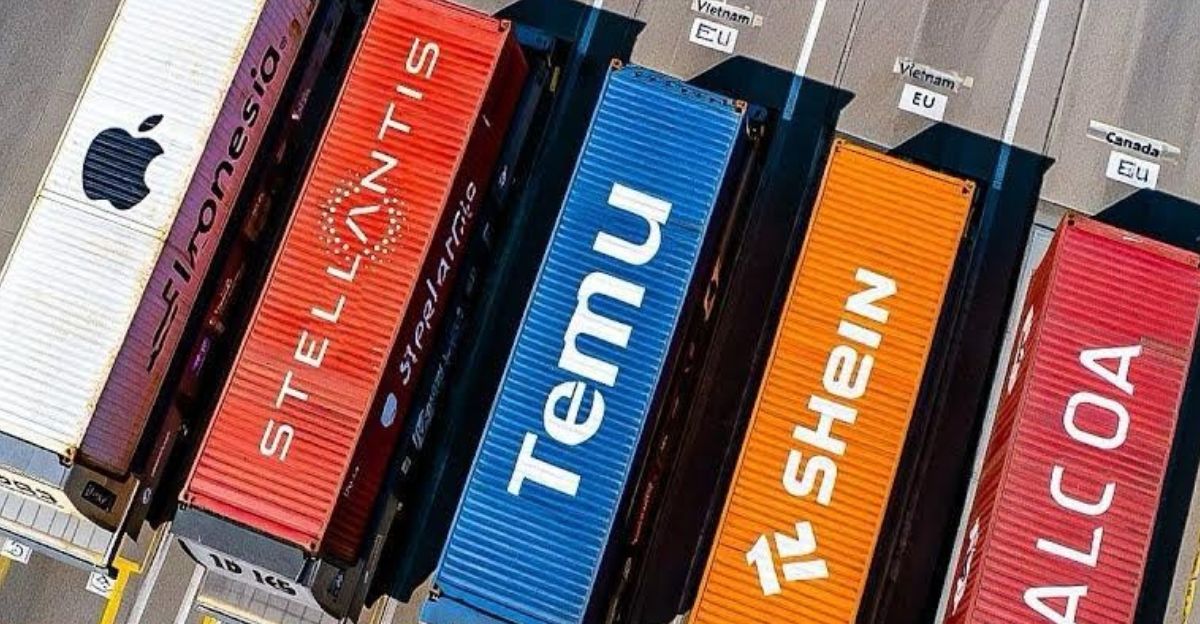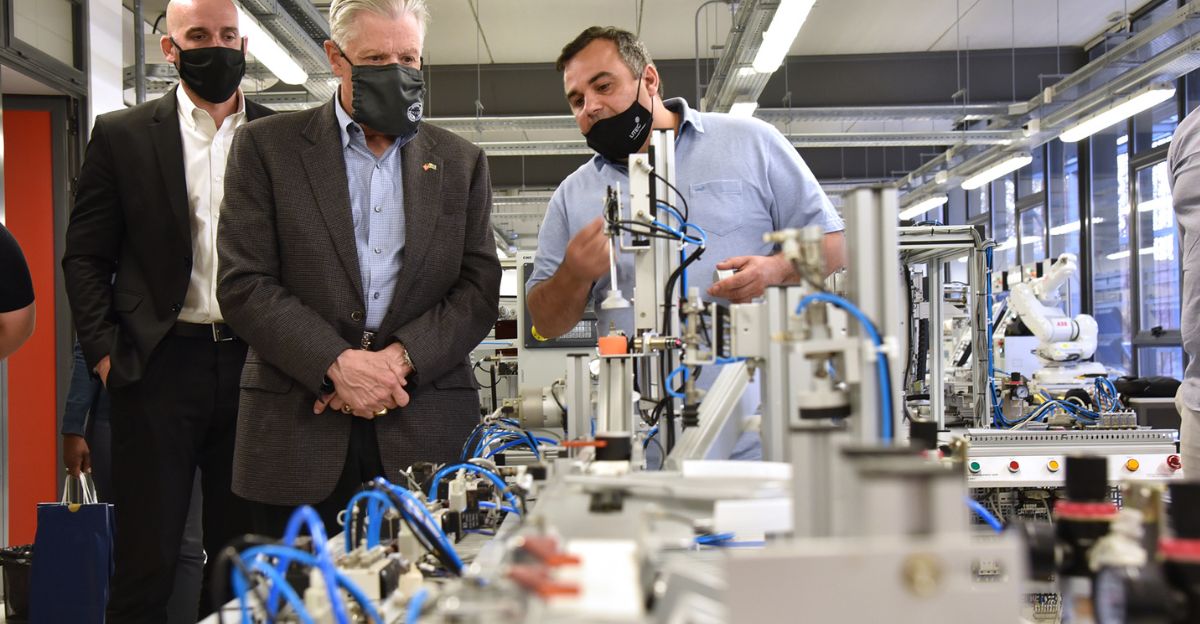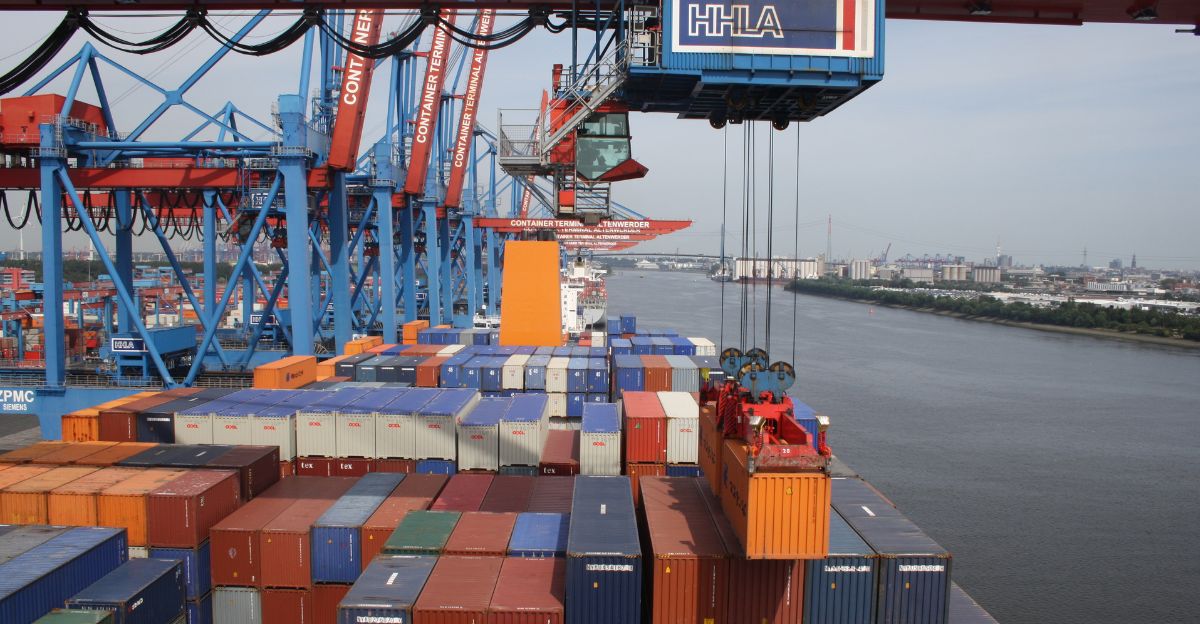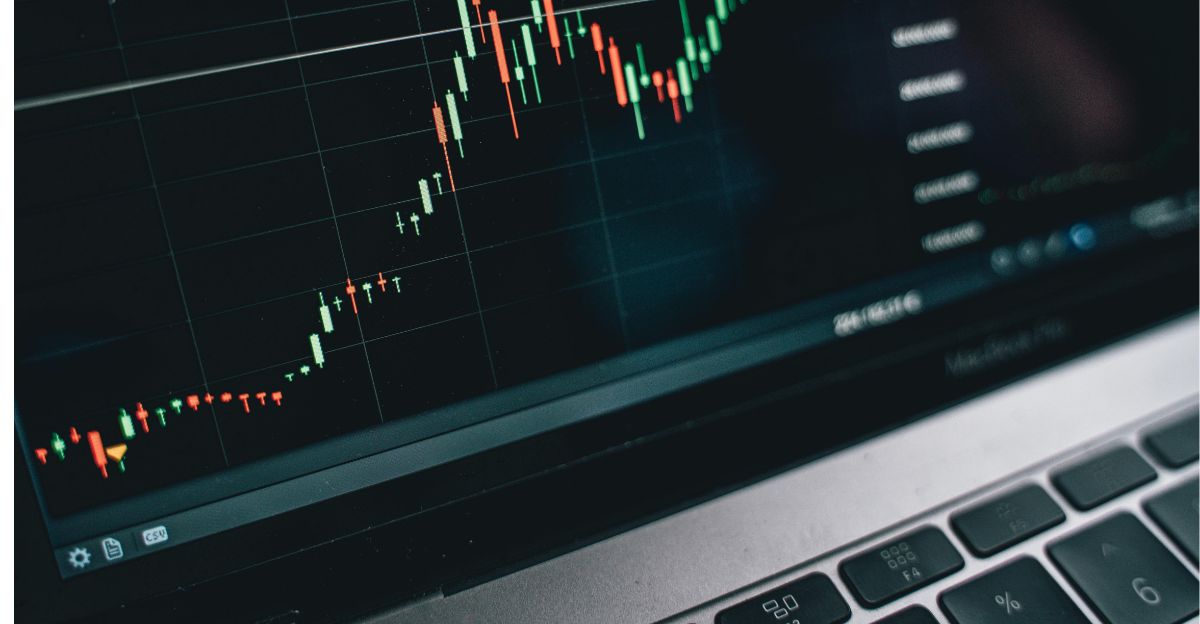
In 2025, as the lines between government and business continue to blur under the Trump administration, five of the most prominent American corporations made it abundantly clear that increasing tariffs and trade uncertainty are forcing them to reevaluate their position in the US market.
It’s not a battle with a political dimension because these companies are revolting against a new line of thinking in global business. With their stable financial positions, these trillion-dollar firms are pursuing safer and cheaper foreign markets as a hedge to protect profits and the supply chain
1. Walmart

As America’s most significant business, Walmart Inc., has made clear that continuing to impose tariffs and hiking tariffs threatens the company’s U.S. presence significantly.
As a response to rising tariffs and trade-related uncertainty, Walmart is stepping in a new direction by moving into developing markets: Southeast Asia, with recently opened locations in Vietnam, and Latin America, where the cost of capital and operating is much cheaper since the political and economic conditions are more predictable.
Walmart’s shift into these markets is just part of its broader strategy, which is focused on strengthening and flexing global supply chains and growing profits worldwide.
2. Carrier

The carrier brand is the primary example of tariff-driven corporate exitism. Right after announcing its plans to move significant production from Indiana to Mexico, Carrier was squeezed, but then proceeded anyway, stating that costs were unsustainable and regulations were high.
The carrier’s move represents a trend: manufacturers want to leave high-tax and high-regulation environments for countries that want their business. The carrier’s move is taking thousands of American jobs, suggesting that there can be a bleak future for American manufacturing businesses.
3. United Technologies Electronic Controls (UTEC)

UTEC, a large producer of HVAC parts, is closing all of its Indiana factories and moving production to Mexico, like many other American manufacturers. Tariff pressures and labor price differences made it easy for the company to take this action, which threatens 700 jobs by 2028.
UTEC’s decision shows how tariff systems intended to establish protections for local manufacturers indirectly expedite offshoring production. In the case of UTEC, it is another example of the unintended consequences of protectionist trade policies or other policies that are designed to “protect” particular economic sectors.
4. Burger King

Burger King’s 2014 inversion merger with Canada’s Tim Hortons, relocating its headquarters north of the border, is a textbook example of corporate inversion for tax evasion purposes. While not a tariff response in and of itself, it is part of the broader pattern of US firms seeking more favorable fiscal environments abroad.
The firm Burger King provides an example of how higher US corporate tax rates and complex regulations incentivize firms to relocate their legal domicile, diminishing our tax base and economic sovereignty.
5. Ford

Ford, the epitome of US manufacturing, no longer sits on the sidelines but develops plans to move substantial output overseas as tariffs and regulatory costs rise.
Mexico and Southeast Asia are the targets, with more stable operating costs and trade policies. Ford’s actions validate one painful truth: even the most reputable US manufacturers cannot take on constant pressure on costs without losing competitiveness.
The ripple effects will jeopardize thousands of American jobs in the auto industry and supply chain partners. Ford’s actions show that growing trade uncertainty and protectionist policies can seriously weaken and even wipe out entire industries. It’s a tough wake-up call about where American industry could be headed. (Source: Reuters, 2025)
Global Trade Tensions and Their Impact on Markets

Beneath this sea of business departures is a shaky economy influenced by the 2025 stock market crash and rising tariffs. These obstacles to the economy not only increase costs but also create uncertainty and increase the complexity and management of supply chains.
In reaction, companies are insulating themselves from these challenges by investing comparatively more overseas. Thus, the U.S. receives fewer investments in business, more layoffs, and less consumer confidence.
This development contradicts traditional notions that protectionism protects domestic interests, demonstrating the pitfalls both American industry and American workers face due to protectionist policies.
What Happens When Giants Leave?

The departure of these companies has chain effects: local economies lose jobs, tax bases decline, and disruptions in supply chains. Small suppliers and the communities that depend on these corporations suffer economic disintegration.
On a global scale, the US risks losing technological advantage and innovation hubs as talent and capital migrate abroad. A mass exodus may further deindustrialize, increase inequality, and decrease America’s geo-strategic clout, creating a feedback loop that makes homegrown investment less attractive.
Refuting the Presumption that Evolution Is Invariably a Necessity

An opposing view is that the exodus of corporations may accelerate the necessary evolution of long-overdue changes in the economy. Corporations entering new markets and competition may create the required efficiencies in the new global economy by shedding some of their old, inefficient operations.
It would pressure US policymakers to update tax codes, reduce regulatory burdens, and invest in worker retraining to retain and attract companies. The short-term pain of losses might give rise to a stronger, more dynamic economy that is more fully engaged in the global economy.
Facing the Crossroads of America’s Economic Future

Walmart, Carrier, UTEC, Burger King, and others are ringing a warning bell: America’s economic model is at a crossroads. Tariffs and protectionism have backfired, scaring off the businesses they attempted to rescue.
The moral dilemma is balancing national economic interests and global business realities with good policy—lower taxes, less regulation, and investment in new ideas and workers’ skills.
While resistance to change can potentially prolong the bad economic state of affairs for longer than current estimates, appearing willing to support change can restore America’s competitive position in a highly interdependent and more challenging world. World.
Discover more trending stories and Follow us to keep inspiration flowing to your feed!

Craving more home and lifestyle inspiration? Hit Follow to keep the creativity flowing, and let us know your thoughts in the comments below!
